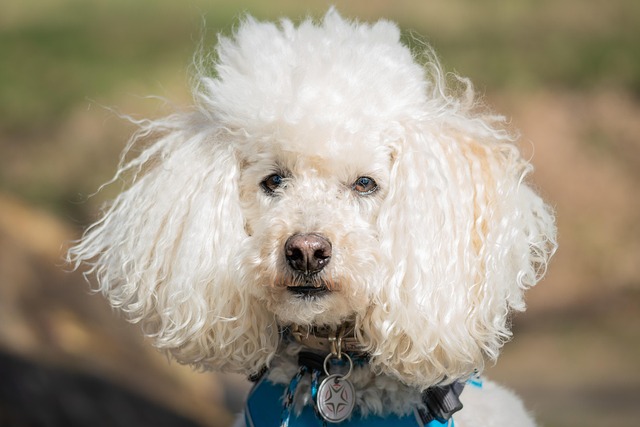
How to test for tetanus in dogs?
Tetanus in dogs often starts with subtle signs most owners miss—like a stiff jaw when grabbing a favorite chew toy or hesitation to climb stairs they once bounded up.
Picture this: You’re curled up on your San Francisco apartment couch, watching your rescue mutt, Charlie, tremble during a thunderstorm. A friend swears by CBD chews for her anxious Labrador, and you wonder: Could these treats calm Charlie every day? And is it really safe? As CBD popularity surges in the U.S. pet market—with sales hitting $300 million in 2024, according to the American Pet Products Association—thousands of dog owners grapple with this question. Let’s dig into the facts, myths, and must-knows before you toss your pup another CBD chew.
CBD, or cannabidiol, comes from the hemp plant and interacts with your dog’s endocannabinoid system (ECS), a network of receptors that regulate mood, pain, and inflammation. Unlike THC (the psychoactive compound in marijuana), CBD won’t get your dog “high.” Proponents claim daily CBD chews ease anxiety, joint pain, or digestive issues. But here’s the catch: most research focuses on humans or adult dogs. Puppies and senior dogs, with their developing or aging livers, may process CBD differently. A vet in Denver warns, “What’s a gentle dose for a 70-pound adult could overwhelm a 10-pound puppy.” In fact, a Seattle pet owner once gave her small terrier daily CBD chews for arthritis pain, only to find him lethargic and off his food—a clear sign of overdose.
Before making CBD chews a daily staple, take these crucial steps. First, always consult your vet. In states like California, the Veterinary Medical Board advises against over-the-counter supplements without professional guidance. Your vet can assess your dog’s health (CBD may interact with medications or vaccines), recommend the right dose (usually 0.2–0.5mg per pound of body weight, split into two daily servings), and monitor for side effects like dry mouth, drowsiness, or diarrhea. Second, choose quality products. Look for chews certified by the National Animal Supplement Council (NASC) in the U.S. or FEDIAF in Europe, with clear ingredient lists and third-party lab results proving low THC levels. Avoid “human-grade” CBD products, which may contain xylitol—a sweetener toxic to dogs.

Start slow. Administer the chew during a calm moment, like after a walk, and observe your dog closely over 24 hours. A Boston terrier owner in Atlanta tracked her dog’s progress in a journal: “Day 1: One chew—seemed more relaxed. Day 5: Increased to two chews—started vomiting.” She immediately cut back, and her pup recovered. Remember, CBD isn’t a replacement for veterinary care. If your dog’s limping persists or anxiety worsens, schedule a check-up.
This decision ties into broader pet ownership responsibilities. In the U.S., keeping your dog’s vaccinations current (rabies shots are mandatory by 4 months in most states) and cleaning up after them in public (fines in cities like Miami start at $150) are legal requirements. CBD chews won’t solve behavior problems, either. If your dog barks aggressively during walks, invest in positive training methods recommended by the ASPCA, like desensitization exercises. In apartment complexes, pairing CBD with a cozy crate and white noise can reduce noise-induced anxiety, but it’s not a standalone solution.
Culturally, avoid quick fixes. In the U.S. and Europe, animal welfare experts emphasize evidence-based care. The American Kennel Club cautions against “magic bullet” solutions. Instead of relying solely on CBD chews, focus on lifestyle factors: regular exercise, a balanced diet, and mental stimulation. Positive reinforcement training—rewarding good behavior with treats and praise, not punishment—builds trust and addresses many underlying issues.
The bottom line? Daily CBD chews can benefit some dogs, but only with careful planning. Work with your vet, choose high-quality products, and monitor your dog’s response. Think of CBD as a supplement, not a cure-all. As a vet in Austin puts it, “The best thing you can give your dog is time, attention, and evidence-based care.” Your furry friend’s well-being is worth the extra effort.

Tetanus in dogs often starts with subtle signs most owners miss—like a stiff jaw when grabbing a favorite chew toy or hesitation to climb stairs they once bounded up.

If you’re a new dog parent in the US—maybe you’re standing in your Ohio apartment’s pet store aisle, holding a bag labeled “senior dog food” while your 8-year-old Dachshund

If you’re a new dog parent to a senior pup in the US—maybe you’re standing in your Florida apartment’s pet food aisle

Pet owners often worry about hidden health risks for their dogs, and toxoplasmosis is one that flies under the radar for many—understanding how dogs pick it up is key to keeping them safe.

If you’re a new dog parent in the US—maybe you’re standing in your Chicago apartment, staring at your 7-month-old Poodle mix, Bella

Tetanus in dogs comes from bacteria entering open wounds—think a deep cut from a rusty fence nail during a walk, or a scraped paw from digging in contaminated soil.